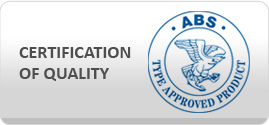PHiLARC Products
- Carbon Steel Electrodes
- High Tensile Strength Steel
- For Low Temperature Steel
- Heat Resisting Steel Electrodes
- Atmospheric Corrosion Resisting
- Hardfacing Electrodes
- Stainless Steel Electrodes
- Nickel and Nickel Alloy Electrodes
- Cast Iron Electrodes
- Aluminum Alloy Electrodes
- Bronze and Copper Alloy Electrodes
- Gouging and Cutting Electrodes
- Solid Welding Wire (GMAW and GTAW)
- Oxy Fuel Gas Filler Rods for Brazing
- Oxy Fuel Gas Brazing FLuxes
- Submerged Arc Weding Wire and Flux
- Flux Cored Wires (FCAW)

PHILSTAIN 312
AWS Specification: AWS A5.4 E312-16
JIS Specification: NONE
Other Specification: DIN 8556 E29 9 R 26
I. APPLICATIONS:
Welding of dissimilar metals such as stainless steel to mild steel and low alloy steel.
Welding of stainless clad steel. Under-laying of hard surfacing.
II. DESCRIPTION:
PHILSTAIN 312 is a lime-titania type electrode which gives 29%Cr-9%Ni. As the weld metal has high ferrite structure, its crack resistibility is excellent. It is used for welding of dissimilar metals and underlaying welding of hard surfacing.
III. NOTES ON USAGE:
-
Choose the welding current as low as possible to prevent cracking of plate.
-
It is necessary to preheat the plate at 200ºC and over in the case of welding of special steel such as high alloy tool steels.
IV. TYPICAL CHEMICAL COMPOSITION OF WELD METAL (%):
|
C |
Mn |
Si |
Ni |
Cr |
P |
S |
|
0.09 |
1.62 |
0.67 |
9.39 |
28.75 |
0.025 |
0.007 |
V. TYPICAL MECHANICAL PROPERTIES OF WELD METAL:
|
Tensile Strength N/mm2 (Ksi) |
Elongation % |
|
761 (110) |
24 |
VI. WELDING POSITIONS: ALL POSITIONS
VII. SIZES AVAILABLE AND RECOMMENDED CURRENTS (AC or DC + ):
|
Diameter (mm |
1.6 |
2.0 |
2.5 |
3.2 |
4.0 |
5.0 |
|
|
Length (mm) |
255 |
255 |
300 |
350 |
350 |
350 |
|
|
Current Range |
F |
20-50 |
20-50 |
50-80 |
70-110 |
100-150 |
130-180 |
|
V, OH |
15-45 |
15-45 |
45-75 |
65-105 |
95-140 |
- |
|

